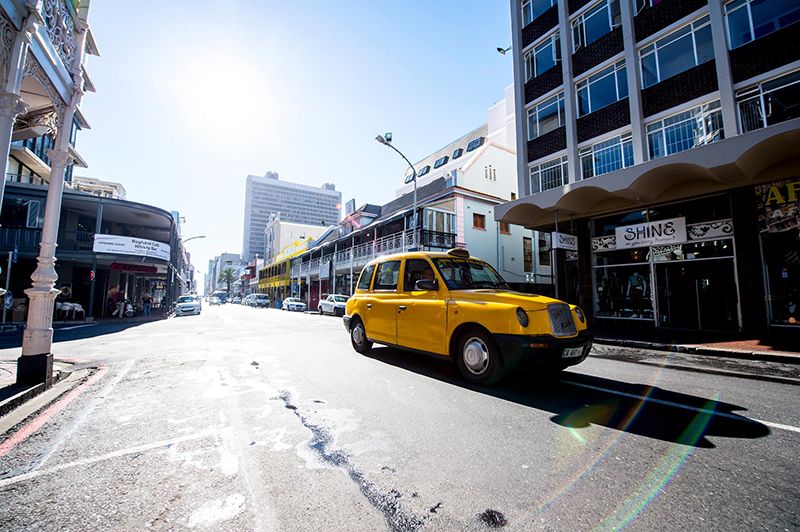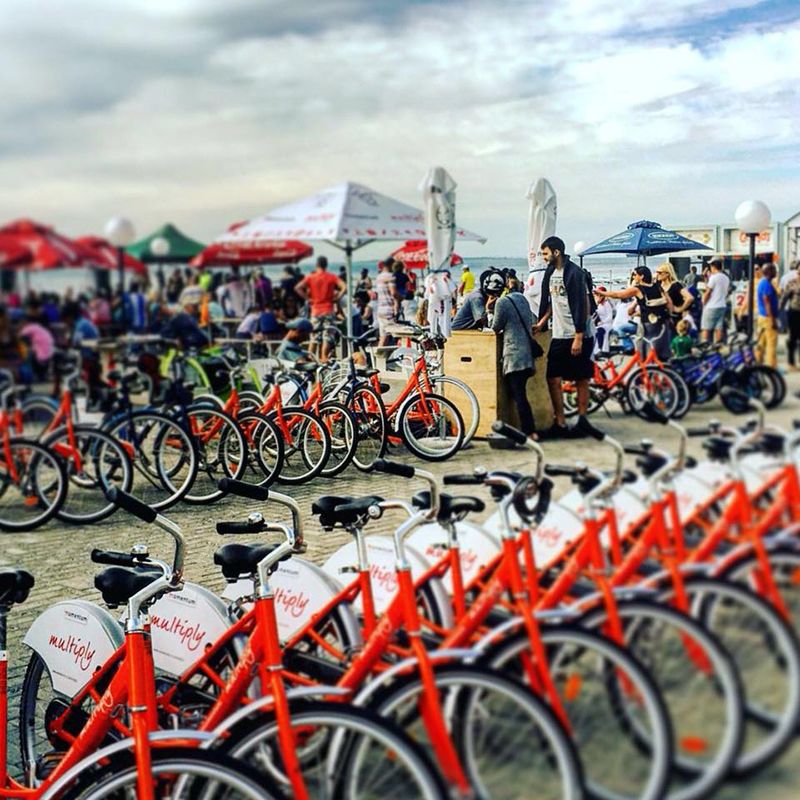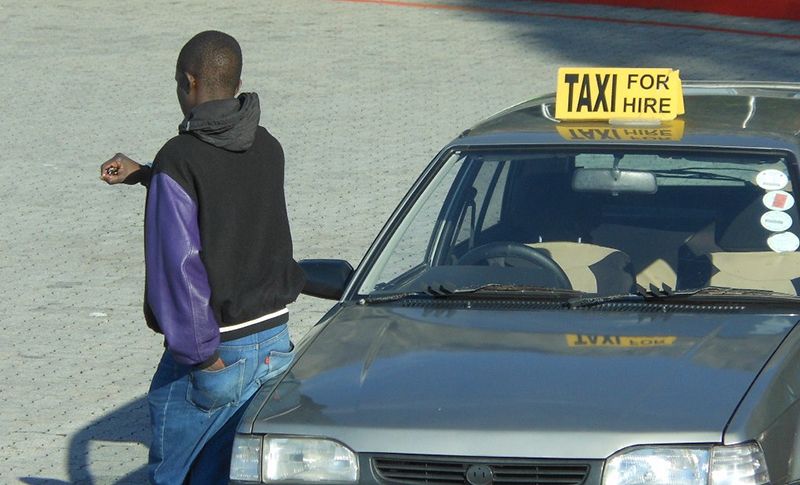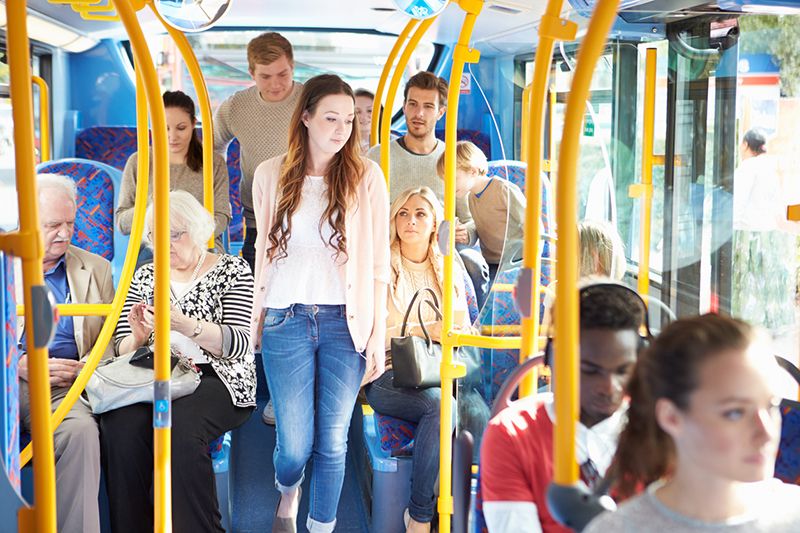Cape Town is a sprawling metropolis and the distances (and safety concerns) don’t make it easy to get around on foot. While there are plenty of transportation options, some are more efficient than others. Here’s our guide to the different modes of transport and how to use them.
Transportation options in Cape Town
Uber
Uber is probably one of the easiest and safest ways to get around in Cape Town, particularly at nighttime. There are always lots of cars available and you don’t have to worry about being ripped off or fumbling around for cash, as it’s all done through your credit card and every journey is tracked. If you’re not already familiar with the transport giant that is Uber, just download the app on your smartphone, register your credit card details, and you can start using it straightaway.
Rikkis Taxis

Rikkis signature black and yellow taxis stand apart from the rest of the vehicles on the roads. They also have a fleet of cars that bear an uncanny resemblance to England’s black cabs (only they’re yellow, not black). The local private taxi service has become very popular in the city. Fares are fixed-rate rather than metered so work out better value than ordinary taxis on longer journeys plus you can save money (and help the environment) by opting for Rikkis Share Ride and share your journey with anyone heading in your direction (from 2 to up to 22 people in bigger vehicles). Another added bonus is that if your cellphone is dead and you’re stranded, just look for one of the Rikkis free phones that are located in key points around the city and order a car to pick you up.
Minibus taxis
For the more acclimatized foreigner who isn’t afraid of a more thrilling ride, Cape Town’s minibus taxis are everywhere. They’re cheap (around ZAR5 per ride — make sure you have change), travel to most parts of the city and will stop on request. Have your wits about you, as it’s not always clear where the minibus is going or when it will stop. The destinations are usually displayed on a sign behind the windscreen or will be shouted out of the window as the minibus drives past. You can hail them down to stop and the driver will usually honk the horn if there’s space to get on (they get jam-packed). You’ll also have to tell the driver when to stop, which might involve some shouting down the bus.
Bicycles

Two wheels are certainly better than four during rush hour and Cape Town has become very bike friendly in recent years, with bike lanes all over the city. There are multiple places where you can rent good quality city bikes or mountain bikes by the hour or day such as The Bike Pick Up, Rent a Bicycle or Upcycles. The latter is a good way of getting up and down the city’s seafront and enjoying the sea views on a sunny day, with four pick up/drop-off points (Waterfront, Seapoint, Breakaway Café and Camps Bay). Just remember to ride on the left-hand side of the road and use clear hand signals to indicate.
Metered taxis

The metered taxis are a little more expensive than the Rikkis Taxis and usually need to be ordered in advance or taken from one of the city’s official taxi ranks. The fares per kilometer are clearly displayed on the outside of the taxi so you can have an idea if you’re being taken for a ride. If you stick to the reputable taxi companies such as Unicab and Excite, you shouldn’t have a problem.
MyCiTi bus

MyCiTi is Cape Town’s modernized bus service that will take you from the city center to the western side of the city, stopping at the V&A Waterfront, Table Mountain Cableway, Camps Bay, Clifton, Hout Bay, as well as to the suburbs around Table View Mountain and Blouberg. You need a rechargeable Myconnect card to ride the buses as they don’t take cash. You can buy one for around R35 at any MyCiTi station kiosk, where you can also top them up. You can check the latest timetables and fares here.
NB: If you want to ride out to the southern suburbs, use the Golden Arrow bus service. Tickets cost around R10 to R15 for a one-way journey.
Car rentals
You probably won’t need a car in the city but hiring a car is a good option for a weekend or day away. If you’re over 25 and have an international driver’s license, hiring a car is easy. There are numerous local and international rental agencies offering different deals so do some research. The most trusted are Avis and Hertz but Value Car Hire and Budget are also good options. Remember to stay on the left side of the road and drive with care as Capetonians take a very casual approach to driving (they never indicate before changing lanes) and drink driving and speeding is quite common. When it comes to parking, stick to well-lit, populated areas or official parking lots to avoid car theft and never park on yellow or red lines.
If you are going to walk…
While the city center, the V&A Waterfront and the seaside promenades are perfect for leisurely walks in a safe environment, if you’re walking in any other areas alone, avoid dark, isolated streets and keep your valuables close.
Got any other advice for getting around in Cape Town for our readers? Share it with us in the comments section below.
Originally published on Ailola by Sophie Lloyd on July 11, 2018.
